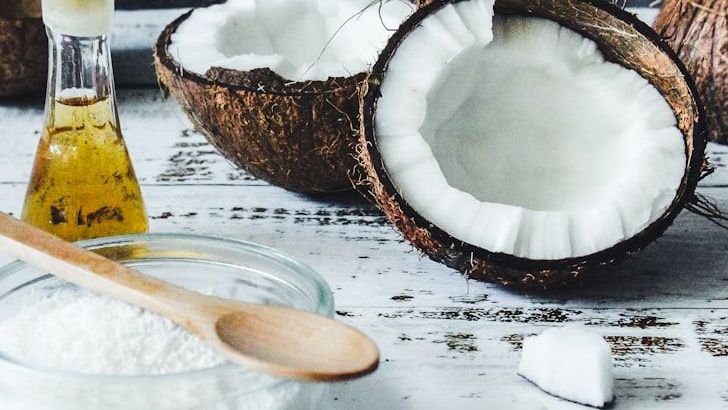The Worst Choice: Highly Processed Vegetable Oil Blends

Most vegetable oils on the market are a blend of canola, corn, soybean, safflower, palm and sunflower oils that are refined and processed, which means they not only lack flavor, but also nutrients. The oils which should be avoided for cooking are oils like soybean, corn, canola, sunflower, and safflower as these oils have unstable fats and will decimate the nutritional properties of your food, giving you a big fat health risk in the meantime. These oils contain unstable fats that aren’t bound together tightly, and because they are unstable, they can produce higher levels of free radicals when they’re heated. When you heat these oils past their smoke point, they break down and release compounds that can damage your cells. Vegetable and seed oils are highly processed oils that are easily damaged during cooking, and some studies suggest that they can cause harm and contribute to disease. The real problem isn’t just the processing – it’s what happens when you cook with them regularly. These cheap, mass-produced oil blends are found in most restaurants and packaged foods, making them nearly impossible to avoid completely.
Fourth Place: Standard Canola Oil

Canola oil is derived from rapeseed, contains a good amount of monounsaturated fats and a decent amount of polyunsaturated fats, and of all vegetable oils, canola oil tends to have the least amount of saturated fats with a high smoke point helpful for high-heat cooking. However, there’s a significant catch. In the United States, canola oil tends to be highly processed, which means fewer nutrients overall, and cold-pressed or unprocessed canola oil is available but can be difficult to find. Bogus information about seed oils – especially canola oil and soybean oil – has been circulating on the Internet for more than a decade, with details that are misleading and often creating confusion in the kitchen. Despite the social media buzz, there’s no need to worry about those bottles of canola oil in your pantry, as using a few tablespoons to sauté vegetables or in a salad dressing is a healthy option. The reality is that canola oil sits in a gray area. While it’s not the villain some make it out to be, it’s also far from being a superfood. Canola oil is a decent source of alpha-linolenic acid (ALA), the main vegetarian source of essential omega-3 fatty acids, which has anti-inflammatory and other effects thought to benefit cardiovascular health, and it also contains phytosterols, which are compounds that occur naturally in plants that may help lower cholesterol.
Third Place: Coconut Oil – The Controversial Choice

Coconut oil is a rich source of medium-chain triglycerides (MCTs), a type of saturated fat, and in general, saturated fats are divided into three subgroups, each of which has different effects in your body. Palm oil is healthier than coconut oil since palm oil only has about 50% saturated fat, while coconut oil contains about 85%. Recent research has shown some interesting benefits that might surprise you. Scientific and lay literature both promotes the consumption of coconut oil based on assumptions that it has many health benefits, including cholesterol-lowering, reduction of the risk of cardiovascular diseases, weight loss, improvement of cognitive functions, irritable bowel syndrome, thyroid conditions and diabetes, enhancing the immune system, and promoting wound healing. The key lies in understanding how your body processes these unique fats. A proportion of MCTs you eat are broken down in a process that produces molecules called ketones, and ketones reduce appetite by either acting directly on the brain’s chemical messengers or altering the levels of hunger-inducing hormones, such as ghrelin. However, coconut oil may not be great for your heart health and should be consumed in moderation, as health authorities advise keeping your intake moderate to avoid increasing your risk of heart disease.
Second Place: Avocado Oil – The High-Heat Champion

Few oils pull double duty like avocado oil, which is rich in oleic acid and antioxidants, and tops the list of the healthiest cooking oils for anyone who wants clean flavor and serious heat performance with a sky-high smoke point at around 520°F making it one of the best oils for frying, grilling or stir-frying without turning bitter or breaking down. Avocado oil is unrefined like extra virgin olive oil, but it has a higher smoking point, which means it can be used to cook at higher heat and is great for stir-frys, plus it doesn’t have much flavor, which makes it a good option for cooking. This versatility makes it perfect for everything from high-temperature searing to delicate salad dressings. Its buttery taste gives it an edge over more neutral-tasting options and the best avocado oils will add subtle richness to everything from roasted vegetables to seared chicken thighs, while being loaded with vitamin E and lutein, which support heart and eye health. Avocado oil contains both monounsaturated and polyunsaturated fatty acids and has one of the highest monounsaturated fat contents among cooking oils as well as vitamin E. The main downside? Price. Quality avocado oil costs significantly more than most other options, but many health-conscious cooks consider it worth the investment for its stability and nutritional profile.
First Place: Extra Virgin Olive Oil – The Clear Winner

Olive oil is the healthiest all-around cooking oil, and oils low in saturated fats are best for your health, but all oil should be used in moderation. Extra virgin olive oil is the absolute best among the healthiest cooking oils because it’s cold-pressed, unrefined and loaded with powerful antioxidants that many other oils lose during heavy processing, including polyphenols like oleocanthal, which have been shown to reduce inflammation in the body and support long-term heart health. The research backing olive oil is impressive and extensive. One study in the Journal of American College of Cardiology found that people who consumed more than half a tablespoon of olive oil per day had a lower risk of mortality compared to those who did not, and individuals who consumed half a teaspoon of olive oil per day had a 28% lower risk of dying from dementia, according to new research presented at NUTRITION 2023. What really sets it apart is its high level of oleic acid, a monounsaturated fat that has been shown to lower LDL cholesterol without hurting HDL levels, which makes it a heart-conscious choice over saturated fats or overly refined vegetable oils. Olive oil, known for its role in the Mediterranean diet, is abundant in healthy monounsaturated fatty acids and powerful antioxidants, like fat-soluble vitamin E which helps to support the health of your skin, hair and nails, and is typically classified as the healthiest cooking oil because of its numerous health benefits, from preventing or managing diabetes to protecting against some cancers, plus a boost in longevity overall. With a moderate smoke point of around 405°F, it’s a smart pick for sautéing greens, roasting root vegetables or building flavor in soups and sauces. While it may not handle the extreme heat that avocado oil can, it’s perfect for most home cooking applications.







